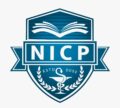Vision, Mission & Objectives
Nurul Islam College Of Pharmacy(NICP)
NURUL ISLAM COLLEGE OF PHARMACY aims at imparting professional technical education, with an emphasis on analytical and reasonable abilities as well as practical skills. It is the objective of the college to inculcate in every student a sense of responsibility towards the society and respect for human life, besides developing in them the highest standards of professional behaviour and personal integrity.
Nurul Islam College Of Pharmacy(NICP) at a Glance
Vision
Nurul Islam College of Pharmacy endeavors for brilliance in teaching, learning & research activities and nurtures competent professionals in terms of scientific temper & leadership.
Mission
- To create an epicenter of excellence for education and research in the field of pharmacy.
- To produce self-motivated, capable and socially sensitive pharmacy graduates with high ethical values.
- To inspire students to become entrepreneurs and job creators.
Objectives
PROGRAMME EDUCATIONAL OBJECTIVES (PEOS) FOR D. PHARM PROGRAMME:
The D. Pharm programme is designed to provide students with a foundational understanding of pharmaceutical sciences and practical skill needed for the entry-level positions in pharmacy practice and healthcare. These PEOs capture the essence of what is crucial for graduates of a D. Pharm programme. They emphasize the importance of foundational skills, patient-centered care, ethics, adaptability, and community engagement—all of which are essential for a successful and impactful career in pharmacy practice.
Entry-Level Competence:
Graduates of the D. Pharm program will possess the foundational knowledge and practical skills necessary to excel in entry-level pharmacy practice. They will be proficient in accurately dispensing medications, managing inventory, and performing essential pharmaceutical calculations.
Patient-Centered Care:
Graduates will demonstrate a strong commitment to providing patient-centered care. They will effectively communicate with patients, offer appropriate counseling on medication use, and ensure patient safety through accurate dispensing and medication management.
Ethical and Professional Behavior:
Graduates will uphold the highest ethical standards in their interactions with patients, healthcare professionals, and the community. They will prioritize patient confidentiality, legal compliance, and the responsible handling of medications.
Lifelong Learning and Adaptability:
Graduates will recognize the importance of continuous learning and adaptability. They will actively seek opportunities to enhance their knowledge, stay updated on industry developments, and adapt to changes in pharmacy practices and regulations.
Community Engagement and Public Health
Graduates will engage with the local community to promote health awareness and contribute to public health initiatives. They will actively participate in campaigns, educational programs, and community service projects that address healthcare needs.
COMPETENCIES
Competency is defined as “A distinct composite of knowledge, skill, attitude and value that is essential to the practice of the profession in real life contexts”.
The candidates who successfully complete the Diploma in Pharmacy (D. Pharm) program of Education Regulations 2020 (ER-2020), from the institutions approved by the Pharmacy Council of India are expected to attain the following professional competencies.
Review Prescriptions:
The student should receive and handle prescriptions in a professional manner and be able to check for their completeness and correctness. Also, the prescribers should be contacted for any clarifications and corrections in the prescriptions with suggestions if any.
Dispense Prescription / Non-Prescription Medicines:
The student should be able to dispense the various scheduled drugs / medicines as per the implications of the Drug & Cosmetics Act and Rules thereunder. Also, the non-prescription medicines (over-the-counter drugs) should be dispensed judicially to the patients as required.
Provide Patient Counseling / Education:
The student should be able to effectively counsel / educate the patients / caretakers about the prescription / non- prescription medicines and other health related issues. Effective communication includes using both oral and written communication skills and various communication techniques.
Hospital and Community Pharmacy Management:
The student should be able to manage the drug distribution system as per the policies and guidelines of the hospital pharmacy, good community pharmacy practice and the recommendations of regulatory agencies. Also, be able to manage the procurement, inventory, and distribution of medicines in hospital / community pharmacy settings.
Expertise on Medications:
The student should be able to provide an expert opinion on medications to health care professionals on safe and effective medication-use, relevant policies and procedures based on available evidence.
Proficiency on Pharmaceutical Formulations:
The student should be able to describe the chemistry, characteristics, types, merits and demerits of both drugs and excipients used in pharmaceutical formulations based on her/his knowledge and scientific resources.
Entrepreneurship and Leadership:
The student should be able to acquire the entrepreneurial skills in the dynamic professional environments. Also, be able to achieve leadership skills through teamwork and sound decision- making skills.
Deliver Primary and Preventive Healthcare:
The student should be able to contribute to various healthcare programs of the nation including disease prevention initiatives to improve public health. Also contribute to the promotion of national health policies.
Professional, Ethical and Legal Practice:
The student should be able to deliver professional services in accordance with legal, ethical, and professional guidelines with integrity.
Continuing Professional Development:
The student should be able to recognize the gaps in the knowledge and skills in the effective delivery of professional services from time to time and be self-motivated to bridge such gaps by attending continuing professional development programs.
